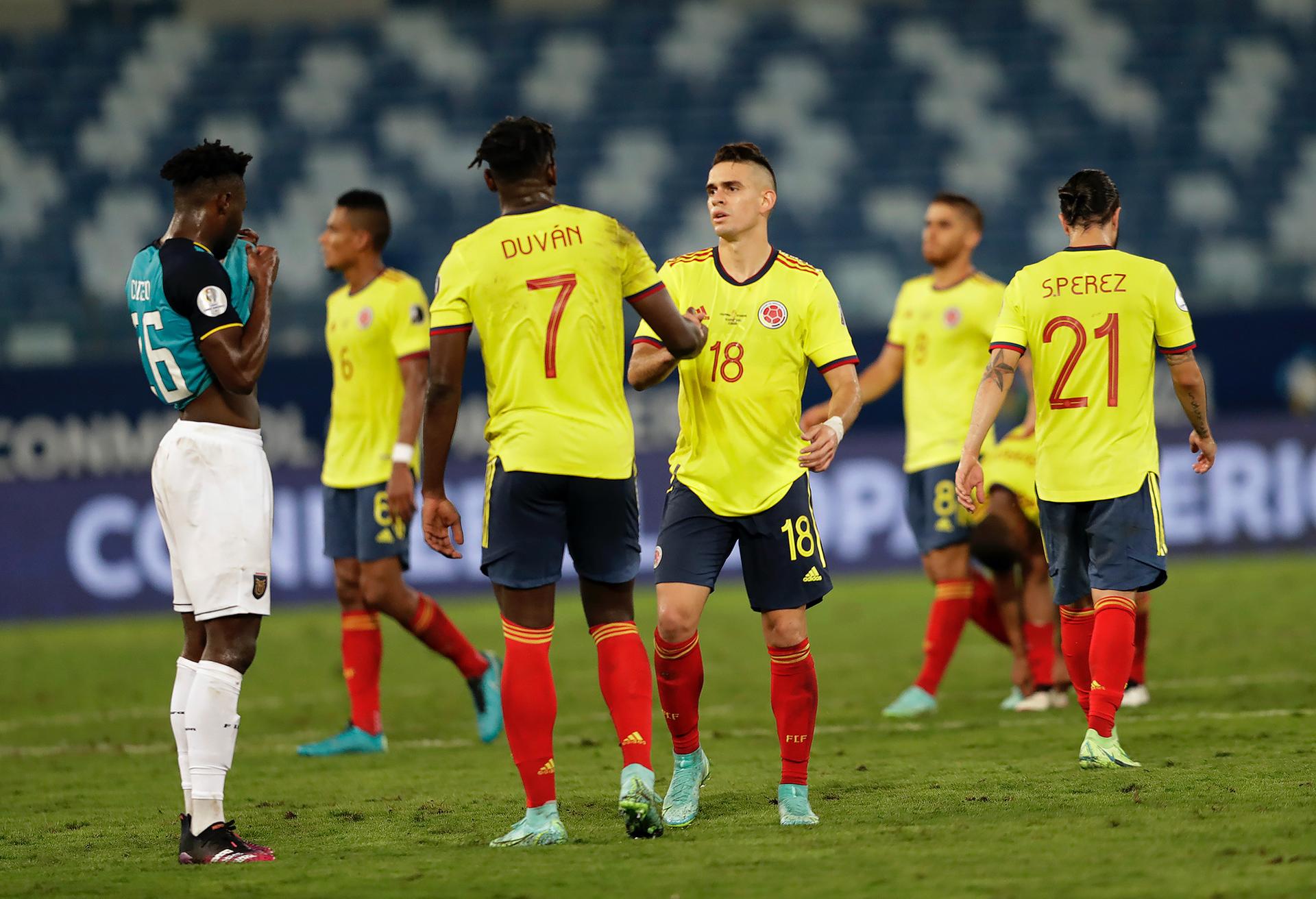The South American soccer tournament, Copa America, kicked off in Brazil’s capital on Sunday, with a goal 22 minutes in by defenseman Marquinhos off a corner kick from Neymar. Brazil went on to defeat Venezuela 3-0.
But roughly a mile away, more than 100 members of Brazilian Indigenous tribes were protesting the tournament that goes for a month (until mid-July). The activists, wearing feather headdresses, beat drums and sang and danced before a thick line of military police who blocked them from arriving at the stadium.
“It’s not fair,” Kreta Kaingang, a leader of the Kaingang people, told international media.
He pointed to the fact that the country has seen “500,000 COVID-19 deaths. Many Brazilians have yet to be vaccinated, and Bolsonaro accepted this tournament when many other countries refused it due to the COVID-19 health risks.”
Related: ‘Bolsonaro, get out!’: Protesters across Brazil call for president’s ouster
It was one of several protests held on Sunday in Brazil against the Copa America.
Although many in the country still support their national team, over 60% of Brazilians believe the country should not be hosting the games — as only 11% of the population is fully vaccinated while COVID-19 cases and deaths are again on the rise. Average deaths are now approaching half a million — and roughly 2,000 a day, the highest rate Brazil has seen in a month.
Some medical professionals say the games could be the breaking point that sinks Brazil into a third wave of the coronavirus.
“For everyone who is on the front lines, treating people and seeing people die every day because of COVID-19, a decision like this is really sad because it goes completely against science and any medical advice.”
“For everyone who is on the front lines, treating people and seeing people die every day because of COVID-19, a decision like this is really sad because it goes completely against science and any medical advice,” said Renan Rocha Granato, a doctor at the Regional Hospital in the Amazonian city of Altamira.
Related: ‘Mining kills’: A gold rush in Brazil threatens the Yanomami Indigenous people
The organizing committee for the games has promised a series of measures to keep players and their delegations COVID-19-free, including isolating teams inside hotels and training facilities and barring fans from the games.
But by the time of kickoff on Sunday, a dozen members of the Venezuelan delegation, including eight players, had already tested positive for the coronavirus. This came after they were forced to leave their captain behind in Caracas because he too was sick.
Three Bolivian players have also now tested positive for the coronavirus.
“An event that brings more people to Brazil and, in one way or another, creates situations where people are in more contact is likely to spread the virus. We don’t know how much, but it’s absurd to think that it’s not going to have an impact.”
“An event that brings more people to Brazil and, in one way or another, creates situations where people are in more contact is likely to spread the virus,” said Rafael Lopes of the COVID-19 Brazil Observatory. “We don’t know how much, but it’s absurd to think that it’s not going to have an impact.”
Related: ‘Difficult years’: Brazil’s fishing communities struggle to stay afloat during pandemic
The Copa was not even supposed to be in Brazil. Bolsonaro gave the green light just two weeks ago after Colombia canceled because of ongoing political turmoil, and Argentina said it couldn’t host due to its own battle against the coronavirus. (Colombia and Argentina had initially planned to co-host the tournament.)
Bolsonaro responded to critics shortly after inviting the tournament to Brazil.
“Since the beginning of the pandemic, I’ve been saying, ‘I’m sorry for the deaths, but we have to live our lives,’” he said.
The Brazilian national team disagreed.
In interviews, both the captain and coach insinuated the team was considering boycotting.
However, in a letter shared last week over social media, the players agreed to play despite their stance against Brazil hosting.
The players have reason to be concerned. According to a recent study, the infection rate among Brazilian soccer players in São Paulo last year was on par with that of front-line health workers.
Related: Brazil’s small farmers tackle food insecurity, hunger amid the pandemic
But concern extends beyond the players.
“There are also people in the middle who support all of the infrastructure needed for a sporting event this size,” said Renata Rivera, a doctor in São Paulo who’s been treating COVID-19 patients since the pandemic began. “There’s a risk for all of the participants. And to demand this right now is shocking.”
The Copa America is big business. The last tournament, held in Brazil in 2019, brought in $118 million for the South American Soccer Confederation in advertising rights, sponsorships, licensing and tickets. Bolsonaro, too, has much to gain.
Brazilian sports historian Carolina Fernandes da Silva says the president is likely hoping to unite the country behind the national soccer team and sell an image that Brazil’s pandemic isn’t as bad as it seems. It’s also one year out from the 2022 presidential elections, with Bolsonaro currently behind in the polls.
“The tournament creates nationalist identity and diverts attention from the problems in Brazil, like the longtime closure of schools, the slow vaccinations and the increase in poverty and inequality,” Silva said.
“It’s shocking and discouraging that this event is being defended amid so much pain,” Rivera, the doctor, said. “As if the pain of those who died, those who lost loved ones, and our own pain witnessing this tragedy day after day was not important.”
Our coverage reaches millions each week, but only a small fraction of listeners contribute to sustain our program. We still need 224 more people to donate $100 or $10/monthly to unlock our $67,000 match. Will you help us get there today?
